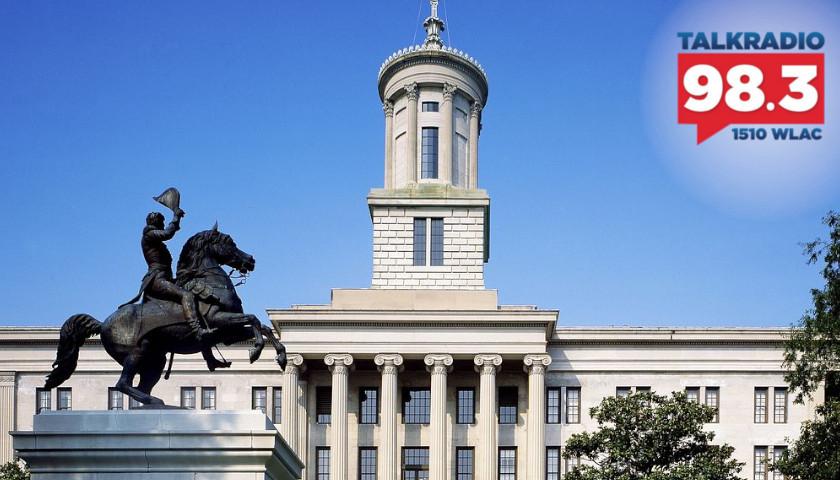U.S. Republican Sen. Lamar Alexander of Tennessee defends fighting for more tax credits for electric vehicles, even as an expert with a Virginia-based think tank says this act “betrays taxpayers.”
As The Tennessee Star reported this month, Alexander is co-sponsoring a bill that would extend tax credits for electric car manufacturers. This, despite Republican U.S. President Donald Trump wanting to do away with them.
In an emailed statement to The Star Wednesday, Alexander was unwavering in his commitment.
“Ten years ago, there were no mass produced electric cars on U.S. highways and, today, there are about one million automakers planning to make millions more,” Alexander said.
“The all-electric Nissan Leaf that I bought in 2011 had a hard time getting me from the Capitol to Dulles airport and back. Its real range was about 70 miles. Today’s Nissan Leaf can travel 226 miles on one charge. Investing in American research and technology for better electric vehicles is one way to help our country and the world deal with climate change. I’m glad to cosponsor this important legislation, which will encourage even more production of electric vehicles, create good jobs and boost the economy.”
In a new column, Veronique de Rugy, a senior research fellow at the Mercatus Center at George Mason University, has a different take on the situation.
According to its website, the Mercatus Center offers market-oriented ideas.
Currently, de Rugy wrote, a federal tax credit of up to $7,500 is available to consumers of the first 200,000 vehicles manufacturers sell, after which the credit is phased out.
“Both Tesla and General Motors have exceeded the cap, a fact that has driven a lobbying frenzy to extend the benefit. This wouldn’t be the first time the credit was expanded, as the original incarnation of the credit applied only to the first 250,000 electric vehicles sold across all manufacturers,” de Rugy said.
“This new legislation will allow for the purchase of an additional 400,000 vehicles to be eligible for a $7,000 credit, but it might as well be permanent. If Congress passes the bill and it’s signed into law, Washington will be sending a clear signal to manufacturers that the gravy train may never end. All the EV makers must then do is flood Washington with lobbying and campaign donations once the next deadline approaches and the cycle could no doubt continue.”
de Rugy said the current credit is expected to cost $7.5 billion in federal revenue from last year through 2022. The costs of the newly-expanded credit would cost much more.
“Almost 80 percent of those utilizing the EV tax credit have incomes over $100,000, making it not just a corporate handout but also a transfer from all workers to wealthier Americans. And despite its advocates’ claims, the EV tax credit fails to reduce the alleged threat of climate change,” de Rugy said.
“Because all personal vehicles in the United States account for only a small fraction of global greenhouse gas emissions, even an unrealistic influx of electric vehicles would prove to be negligible. Besides, standard internal combustion engines emit far less pollution today than they have in the past. Simply replacing older cars can do as much or more to benefit the environment than even entirely switching over to electric vehicles.”
As The Star reported in February, research shows electric car manufacturers wouldn’t make a tidy profit in a pure free market system because, at least right now, there isn’t enough demand for that product.
So that’s why government gets involved.
According to Green Car Reports, this legislation Alexander speaks of has many other sponsors, Republican and Democrat.
“The Driving America Forward Act counts among its key sponsors Michigan Democrats Debbie Stabenow and Gary Peters, Tennessee establishment-Republican Lamar Alexander and Maine Republican-centrist Susan Collins. Michigan Democratic Rep. Dan Kildee signaled his support in the House as well. Automakers including General Motors, Fiat Chrysler Automobiles, Tesla, Honda, Toyota, Ford, Nissan, and Volkswagen have supported the effort,” according to the website.
As The Tennessee Star reported, state officials have given Volkswagen some type of concessions to compel the company to build electric cars in Chattanooga.
As Nashville Public Radio reported, state officials spent years pitching the state as Volkswagen’s best choice for an electric car manufacturing facility.
As The Tennessee Star reported last fall, former Tennessee Democratic Gov. Phil Bredesen said in 2010 that during the coming decade we’d see a surge of electric vehicles on the state’s roads and highways.
So certain of it, he handed out $2.5 million in government money to encourage people to buy EVs — the Nissan Leaf only, manufactured in Smyrna.
Now that the decade is nearly out, evidence indicates Bredesen was no visionary.
As reported in 2015, Tennessee had 2,568 registered EVs on the road.
In three years, that number has increased, slightly, to 3,735 EVs. Davidson County, meanwhile, currently has 746 registered EVs, according to the Tennessee Department of Revenue.
Also, as The Star reported last fall, taxpayers have paid millions of dollars to help electric vehicle manufacturers not only get their products out on the road but also furnish electric car charging stations all over Nashville.
Prior reporting shows few people around Nashville appear to use these charging stations.
– – –
Chris Butler is an investigative journalist at The Tennessee Star. Follow Chris on Facebook. Email tips to [email protected].
Photo “Veronique de Rugy” by the Mercatus Institute. Background Photo “Electrical Cars” by felixkramer. CC BY 2.0.






[…] The Tennessee Star reported in April, Alexander has defended fighting for more tax credits for electric […]
And we Tennesseans have elected his clown how many times?
He is so out of step with reality if is not funny.
Just go away quietly, Lamar. Join Little Bobby Corker in the world of failed has-beens.
I am sorry he did not realize his dream to get the smoke out of the Smoky Mountains, nearby.